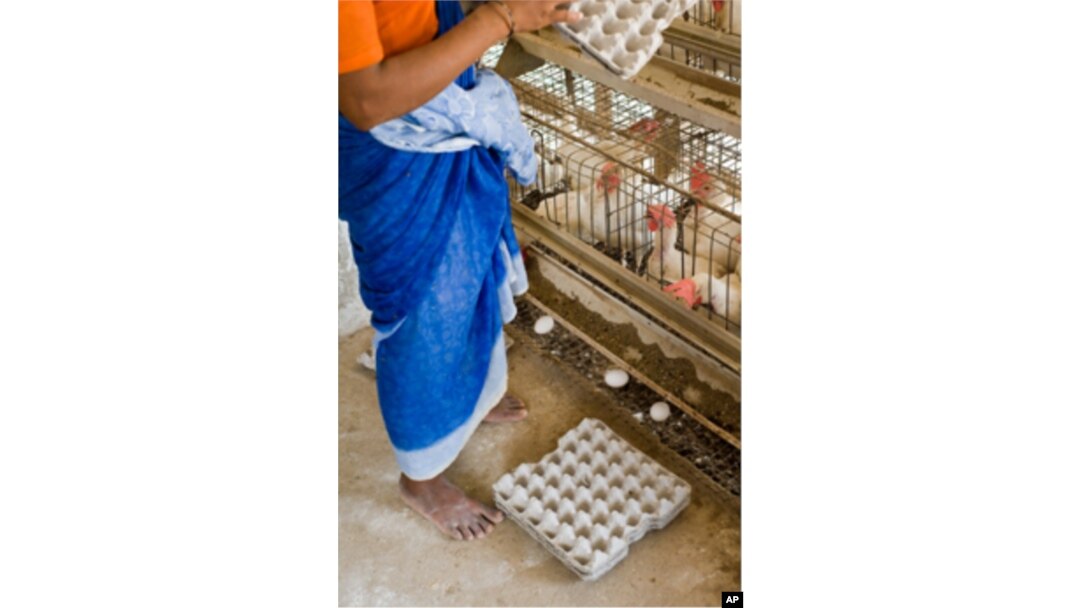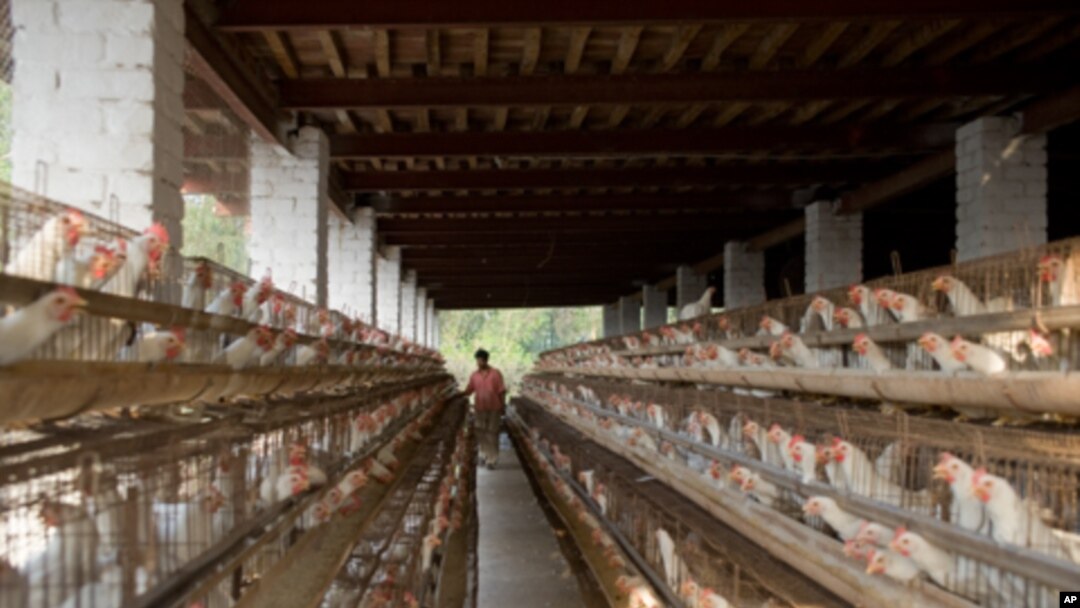As large-scale livestock farming spreads throughout the developing world, so does concern about conditions for the animals raised in these facilities.
Animal welfare groups in the United States scored big last month when fast-food giant, McDonald's, and major meat processor, Hormel, agreed to phase out the use of confining pens for pregnant pigs.
Changes are taking place in countries such as India and Brazil as well, where several companies have announced they would source their eggs only from farms that do not use cages.
Village chickens vs. mega-farms
These developments are happenening at a time when livestock production is changing rapidly in many parts of the world.
Meat consumption has grown sharply along with rising prosperity. More meat is now produced in the developing world than in the high-income countries.

In India, 80 percent of egg production takes place in battery cages, small wire pens which animal welfare advocates say barely give hens enough room to raise their wings.
But when you think of where meat, milk and eggs come from in some developing countries, you may have the wrong idea.
“You’ll think of these villages and these chickens running around underfoot," says Chetana Mirle with the Humane Society International. "But really, even in a country like India, 80 percent of production takes place in battery cages.”
Battery cages are small wire pens typically used at large egg-producing facilities that animal welfare advocates say barely give hens enough room to raise their wings.
Going the wrong way
They are banned in the European Union, and the U.S. state of California is phasing them out. But their numbers are increasing as intensive livestock farms begin operations all over the developing world.
“Instead of going the right way, they are doing what is being currently banned in other parts of the world,” says Tozie Zokufa, South Africa representative for the animal welfare group Compassion in World Farming.
Although animal welfare groups are more numerous in Europe and the United States, “As the consumption of products of animal origin is increasing in Brazil or Thailand or Indonesia, just to name a few, people are increasingly becoming more aware of how the food is produced," says livestock expert Daniela Battaglia with the U.N. Food and Agriculture Organization.
"They are increasingly asking for more values to be respected," she says, including respect for the environment and workers’ rights, as well as animal welfare.
Like the cry of a child
Zokufa used to be a government meat inspector in South Africa. One day while inspecting a slaughterhouse, he saw that a pig was not stunned properly before it was killed.
“And the cry. The cry of that pig. It was like a little kid, a little girl,” he says.
Zokufa says that experience made him stop and think. He saw animals being treated much better at slaughterhouses exporting meat to Europe and decided he wanted to change the way meat was produced for South Africa.
“I knew that I couldn’t do it in the position that I had at the time because I was just flowing with the system,” he says.
So he joined Compassion in World Farming, which opposes large-scale, intensive livestock operations.
Small farms or big?
Zokufa believes the better course would be toward small-scale farms that let animals roam free. He says they are better for the animals and the environment, and provide more jobs as well.
But a recent report by the U.N. Food and Agriculture Organization says there is no viable alternative to intensive livestock operations for feeding growing urban populations. Those farms simply produce more with fewer resources.
Intensification does not have to be a bad thing, says the FAO’s Daniela Battagila.
“You [do] not necessarily have to choose between food security and taking care of the animals," she says. "The two things can go hand in hand. Or even better, one can contribute to the other.”
FAO is promoting simple, low-cost techniques, such as more humane livestock handling and slaughtering procedures.
That could mean not only better conditions for the animals, but a better quality and more abundant supply of meat for the growing number of developing-world consumers who are demanding it.


